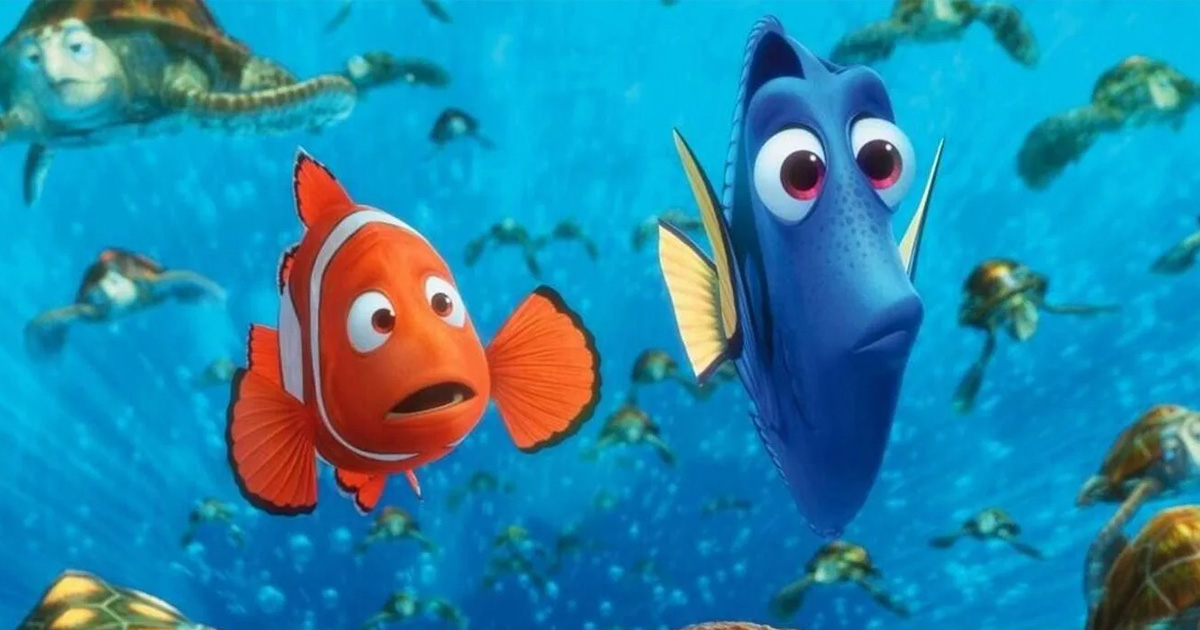Hidden In The Melody
It's easy to miss the warning signs in a song when the melody lifts you. But some lyrics were never meant to comfort.

"Every Breath You Take" – The Police
It's played at weddings, quoted in love notes, used in commercials, and streamed as a ballad. Yet Sting once called it "a very, very sinister song" about surveillance. Written during his divorce, the lyrics reflect control and obsession, not romance. Even the melody's calmness masks unease.
 The Police - Every Breath You Take (Official Music Video) by The Police
The Police - Every Breath You Take (Official Music Video) by The Police
"Young Girl" – Gary Puckett & The Union Gap
After clearly pursuing her, a grown man tells a teenage girl she's too young for him. Despite its unsettling premise, the song climbed to number 2 on Billboard in 1968. Framed as self-restraint, the lyrics shift blame from the adult to the girl, which makes its moral tone deeply flawed.
 Gary Puckett & The Union Gap - Young Girl - HQ by HappyDuckk
Gary Puckett & The Union Gap - Young Girl - HQ by HappyDuckk
"Delilah" – Tom Jones
Still sung with cheer in pubs and karaoke bars, "Delilah" is a murder confession. The narrator catches his lover with another man, waits outside her home, then stabs her. Jones defended it as dramatic storytelling, but Welsh women's groups called for bans due to its casual view of femicide.
 Tom Jones - Delilah - 1967-68 by pradedmelnik
Tom Jones - Delilah - 1967-68 by pradedmelnik
"Possession" – Sarah McLachlan
The song sounds romantic, but its roots are chilling. McLachlan wrote it after receiving obsessive letters from a stalker who later sued her by claiming she stole his words. She won the case, but the fan died by suicide before the trial. It remains one of her most misunderstood tracks.
 Sarah McLachlan - Possession by The Official Sarah McLachlan
Sarah McLachlan - Possession by The Official Sarah McLachlan
"Run For Your Life" – The Beatles
Released in 1965, it opens with a threat: "I'd rather see you dead". Lennon later disowned the lyrics by admitting regret over writing something so possessive. The line was borrowed from an Elvis song, but the tone was his own. It's rarely played now, and for good reason.
 BEATLES RUN FOR YOUR LIFE Recovered Archives 1965-1966 by FAB GEAR FAVE RAVE
BEATLES RUN FOR YOUR LIFE Recovered Archives 1965-1966 by FAB GEAR FAVE RAVE
"Baby It's Cold Outside" – Frank Loesser
Written in 1944 and long considered a holiday duet, the song raised alarms in recent years. Lyrics like "Say, what's in this drink?" drew criticism for trivializing consent. By 2018, major radio stations pulled it following a renewed public debate spurred by the #MeToo movement.
 Baby it's cold outside by mrdaft
Baby it's cold outside by mrdaft
"I Don't Like Mondays" – The Boomtown Rats
"I don't like Mondays" were the words of 16-year-old Brenda Ann Spencer after she open-fired on a San Diego school in 1979. The Boomtown Rats turned that phrase into a song just weeks later. Its success in Europe contrasted with bans and backlash in US radio markets.
 The Boomtown Rats - I Don't Like Mondays (Official Video) by The Boomtown Rats
The Boomtown Rats - I Don't Like Mondays (Official Video) by The Boomtown Rats
"Nebraska" – Bruce Springsteen
Sparse and almost whispered, "Nebraska" recounts the 1958 killing spree by Charles Starkweather and Caril Ann Fugate. Springsteen wrote from the killer's point of view after reading about the murders in a true crime magazine. It's one of his bleakest, most haunting ballads.
 Bruce Springsteen - Nebraska - The Song (From VH1 Storytellers) by Bruce Springsteen
Bruce Springsteen - Nebraska - The Song (From VH1 Storytellers) by Bruce Springsteen
"Mack The Knife" – Bobby Darin
The upbeat swing of Bobby Darin's 1959 hit masks its source: The Threepenny Opera by Bertolt Brecht, where the character Mackie is a knife-wielding murderer. Lines with gory details were softened for American radio, but the core tale of casual violence remains embedded in its bones.
 Bobby Darin - Mack the Knife (Live 1970) by shazi52
Bobby Darin - Mack the Knife (Live 1970) by shazi52
"Janie's Got A Gun" – Aerosmith
Steven Tyler found his inspiration after reading reports of child abuse cases, which deeply unsettled him. Released in 1989, the track opens like a thriller—Janie has a secret, and someone will pay. The band later confirmed that Janie's father was the aggressor behind the story.
 Aerosmith - Janie's Got A Gun (David Fincher Cut) by Aerosmith
Aerosmith - Janie's Got A Gun (David Fincher Cut) by Aerosmith
"Comfortably Numb" – Pink Floyd
Roger Waters wrote it during a bout with hepatitis and described the haze brought on by medication. David Gilmour's soaring guitar solo created the illusion of uplift, which masked the song's bleak tone. Waters later explained it was meant to reflect emotional detachment.
 PINK FLOYD Comfortably Numb (The Wall movie, 1982) [HQ] by Hendra Sumatera (Hendra)
PINK FLOYD Comfortably Numb (The Wall movie, 1982) [HQ] by Hendra Sumatera (Hendra)
"Mr. Brownstone" – Guns N' Roses
It sounds like a groove-heavy rock track, but "Mr. Brownstone" refers to hell dust. Slash and Izzy Stradlin wrote about their habits. In his autobiography, Slash admitted that the song documented how their casual use turned into dependence, as mirrored in the lyrics about the slide from thrill to trap.
 Guns N' Roses - Mr.brownstone (Official Music Video) by D4V1
Guns N' Roses - Mr.brownstone (Official Music Video) by D4V1
"Mother's Little Helper" – The Rolling Stones
Released in 1966, this Stones track targeted suburban Valium use. Mick Jagger sang about housewives numbing their misery with pills. Rolling Stone archives note that it stirred controversy by spotlighting a taboo subject. Its sarcastic tone disguised the grim truth of pharmaceutical escapism.
 ROLLING STONES MOTHER S LITTLE HELPER by ALOPS
ROLLING STONES MOTHER S LITTLE HELPER by ALOPS
"Rehab" – Amy Winehouse
The chorus was catchy and memorable, but Amy Winehouse's refusal to enter rehab carried real emotional weight. Her father and management had urged her to seek help, and Winehouse later told the New York Times that the song reflected her resistance to intervention.
 Amy Winehouse - Rehab by Amy Winehouse
Amy Winehouse - Rehab by Amy Winehouse
"Can't Feel My Face" – The Weeknd
Its synth-pop sheen and infectious chorus gave it massive appeal. Yet Abel Tesfaye, known as The Weeknd, confirmed in a GQ interview that the lyrics refer to coke. "Can't feel my face" is a side effect of the drug, reframed as an intoxicating relationship metaphor.
 The Weeknd - Can't Feel My Face (Official Video) by The Weeknd
The Weeknd - Can't Feel My Face (Official Video) by The Weeknd
"Polly" – Nirvana
Kurt Cobain said the song was told from the perpetrator's perspective to expose cruelty. In 1987, a 14-year-old girl escaped after being abducted and tortured in Tacoma, Washington. Many fans misunderstood its disturbing origin for years because it begins quietly, deliberately masking the horror it retells.
 Nirvana - Polly (Live On MTV Unplugged, 1993 / Unedited) by Nirvana
Nirvana - Polly (Live On MTV Unplugged, 1993 / Unedited) by Nirvana
"Goodbye Earl" – The Chicks
Released in 2000, this country shocked audiences with its upbeat murder plot. Earl is abusive; Mary Ann and Wanda kill him. Though fictional, it drew from real domestic violence trends. Vulture later reported it was even used in classrooms to spark discussions on women and justice.
 The Chicks - Goodbye Earl (Live from MMXVI Tour) by The Chicks
The Chicks - Goodbye Earl (Live from MMXVI Tour) by The Chicks
"Luka" – Suzanne Vega
Vega sings from the viewpoint of a child suffering abuse. The lyrics, confirmed by Vega herself in interviews, hint at violence without ever stating it outright. The restraint made it more powerful. It starts with a soft, almost shy tone, subtle enough to mask the subject for years.
 Suzanne Vega - Luka by Suzanne Vega
Suzanne Vega - Luka by Suzanne Vega
"Semi-Charmed Life" – Third Eye Blind
Beneath its infectious pop-rock beat, this hit veiled the chaos of addiction. Some of the lyrics were often edited out for radio. Frontman Stephan Jenkins revealed that the upbeat tone intentionally contrasts the song's brightness with its destructive core to catch listeners off guard.
 Third Eye Blind - Semi-Charmed Life (Official Music Video) [HD] by thirdeyeblind
Third Eye Blind - Semi-Charmed Life (Official Music Video) [HD] by thirdeyeblind
"Golden Brown" – The Stranglers
"Golden Brown" rose in the UK charts in 1982, praised for its elegance. Many took it as a love song, but members of The Stranglers later confirmed it had dual meanings: a woman and diaphin. The time signature, unusual for radio hits, mirrored the haze of addiction.
 The Stranglers - Golden Brown (Restored Music Video) by benski tv
The Stranglers - Golden Brown (Restored Music Video) by benski tv
"1-800-273-8255" – Logic
When Logic released this track in 2017, calls to the National Suicide Prevention Lifeline jumped 27%, according to CNN. The lyrics chronicle a person in crisis finding a reason to live. Named after the hotline, the song turned mental health awareness into a cultural conversation.
 Logic - 1-800-273-8255 ft. Alessia Cara, Khalid (Official Video) by Logic
Logic - 1-800-273-8255 ft. Alessia Cara, Khalid (Official Video) by Logic
"Jeremy" – Pearl Jam
In 1991, Jeremy Delle, a 15-year-old student in Texas, died by suicide in front of his classmates. Eddie Vedder saw a short news blurb and expanded it into a haunting narrative. The grunge sound hides a portrait of alienation and the agony of going unnoticed.
 Pearl Jam - Jeremy (Official 4K Video) by Pearl Jam
Pearl Jam - Jeremy (Official 4K Video) by Pearl Jam
"Mad World" – Gary Jules / Tears For Fears
The original was a synth-driven 1982 release by Tears for Fears. But with its haunting piano, the 2001 Gary Jules cover redefined the song. Both versions explore emotional disconnection, and Roland Orzabal himself confirmed the lyrics were meant to reflect adolescent confusion and depression.
 Tears For Fears - Mad World (Official Music Video) by Tears For Fears
Tears For Fears - Mad World (Official Music Video) by Tears For Fears
"Boulevard Of Broken Dreams" – Green Day
This song comes from the rock opera American Idiot, in which the character Jesus of Suburbia walks alone, disillusioned and lost. Billie Joe Armstrong called it a declaration of emotional self-reliance. Its title and tone echoed the isolation of post-9/11 youth culture in the US.
 Green Day - Boulevard Of Broken Dreams [Official Music Video] [4K Upgrade] by Green Day
Green Day - Boulevard Of Broken Dreams [Official Music Video] [4K Upgrade] by Green Day
"Lithium" – Nirvana
Sharp shifts in mood across verses reflect emotional instability, masked by Nirvana's signature fuzz. Kurt Cobain said the lyrics were inspired by someone who turned to religion after losing his girlfriend. He chose the title ironically by referencing the bipolar medication Lithium to underscore the contrast.
 Nirvana - Lithium (Official Music Video) by Nirvana
Nirvana - Lithium (Official Music Video) by Nirvana
"Tears Dry On Their Own" – Amy Winehouse
It may sound like a breakup anthem, but the emotion is more profound. Amy Winehouse wrote it as a response to lingering pain and detachment. As shown in the 2015 documentary Amy, she often hid vulnerability behind bravado, and this song became a mask for emotional survival.
 Amy Winehouse - Tears Dry On Their Own by Amy Winehouse
Amy Winehouse - Tears Dry On Their Own by Amy Winehouse
"How To Save A Life" – The Fray
Before his fame, lead singer Isaac Slade volunteered at a youth camp for troubled teens. One of those counseling experiences inspired this track. The lyrics aren't about heroism but the frustration of failing to reach someone. USA Today confirmed it was drawn from real conversations.
 The Fray - How to Save a Life (Official Video) by The Fray
The Fray - How to Save a Life (Official Video) by The Fray
"Born In The USA" – Bruce Springsteen
Ronald Reagan mentioned it during his 1984 campaign, but Springsteen never meant it as patriotic. The song chronicles a Vietnam veteran's alienation upon returning home. NPR and Rolling Stone traced their misreading over the years by noting how the chorus distracted from the bitter verses.
 Bruce Springsteen - Born in the U.S.A. (Official Video) by Bruce Springsteen
Bruce Springsteen - Born in the U.S.A. (Official Video) by Bruce Springsteen
"99 Red Balloons" – Nena
A Rolling Stones concert once released a wave of balloons that floated toward the sky. That image stuck with Nena's guitarist, which inspired a Cold War fable. Released in 1983, the German original depicts mistaken military retaliation, while the English version retains its anti-war message.
 NENA | 99 Red Balloons [1984] (Official HD Music Video) by NENA
NENA | 99 Red Balloons [1984] (Official HD Music Video) by NENA
"Paper Planes" – M I A
Gunshots and kids' choirs create a satirical portrait of immigrant stereotypes. M I A wrote the song to reflect how Western societies view migrants as threats. As Pitchfork reported in 2007, the lyrics parody the criminal persona often projected onto those fleeing conflict and poverty.
 M.I.A. - Paper Planes by M.I.A.
M.I.A. - Paper Planes by M.I.A.
"Electric Avenue" – Eddy Grant
For many, it's a synth dance hit used in car ads and sports montages. But its name comes from the first market street in London with electric lighting. In 1981, the Brixton riots erupted there after police clashed with the Black community. Grant's lyrics reflect urban unrest.
 Eddy Grant - Electric Avenue by EddyGrantOfficial
Eddy Grant - Electric Avenue by EddyGrantOfficial
"Blurred Lines" – Robin Thicke
This 2013 single seemed like a party anthem, topping charts and earning Grammy nods. But lines like "I know you want it" drew global backlash. TIME reported that multiple universities banned it due to concerns about consent. Thicke later told GQ the lyrics were meant to be edgy but misunderstood.
 Robin Thicke - Blurred Lines ft. T.I., Pharrell by Robin Thicke
Robin Thicke - Blurred Lines ft. T.I., Pharrell by Robin Thicke
"Dance Monkey" – Tones And I
With its quirky voice and viral chorus, "Dance Monkey" became 2019's unlikely hit. Tones and I wrote about the pressure and loss of dignity she felt while busking. In a BBC interview, she described street audiences yelling demands as if she were a puppet on command.
 TONES AND I - DANCE MONKEY (OFFICIAL VIDEO) by Tones And I
TONES AND I - DANCE MONKEY (OFFICIAL VIDEO) by Tones And I
"Do You Really Want To Hurt Me" – Culture Club
In Rolling Stone, Boy George shared that this hit reflected a toxic relationship and his fear of rejection as a closeted gay man. The melody, soft and almost pleading, masked sharp personal pain. His voice may have defined '80s pop, but this track was far more intimate.
 Culture Club - Do You Really Want To Hurt Me by Culture Club
Culture Club - Do You Really Want To Hurt Me by Culture Club
"Hey Ya!" – OutKast
"Shake it like a Polaroid picture" was everywhere in 2003. But Andre 3000's verses spoke of crumbling relationships and love's impermanence. Genius notes that he contrasted joyous sounds with bleak lyrics on purpose. As he sings, "Nothing lasts forever"—and that includes the party.
 Outkast - Hey Ya! (Official HD Video) by Outkast
Outkast - Hey Ya! (Official HD Video) by Outkast
"Macarena" – Los Del Rio
In the Spanish version, Macarena cheats on her boyfriend while he serves in the military. The English lyrics removed this betrayal entirely to reshape it into a dance craze. El Pais reported in 1996 that many fans were surprised by the original storyline behind the global wedding favorite.
 Los Del Rio - Macarena (Bayside Boys Remix) by LosDelRioVEVO
Los Del Rio - Macarena (Bayside Boys Remix) by LosDelRioVEVO
"Hotel California" – The Eagles
Don Henley called it a metaphor for fame's seductive danger. "Hotel California" draws listeners in with dreamlike imagery, but the meaning turns claustrophobic. The line "You can check out any time you like, but you can never leave" illustrates how Hollywood entices and quietly devours ambition.
 Eagles - Hotel California (Live 1977) (Official Video) [HD] by Eagles
Eagles - Hotel California (Live 1977) (Official Video) [HD] by Eagles
"Smiling Faces Sometimes" – The Undisputed Truth
This 1971 release by The Undisputed Truth disguises menace beneath soulful harmonies. Penned by Whitfield and Strong, it echoes Nixon-era anxieties. The line "Beware the handshake that hides the snake" warns listeners that charm can conceal deceit, and smiles may mask schemes far more dangerous than they appear.
 The Undisputed Truth - Smiling Faces Sometimes (1971) by 1hit1ders
The Undisputed Truth - Smiling Faces Sometimes (1971) by 1hit1ders
‘Father Of Mine" – Everclear
Art Alexakis used this track to confront a wound that never closed. His father left during childhood, and that absence echoes through the lyrics: "Do you even know who I am?" Rolling Stone confirmed the song was autobiographical, crafted as a message to an unreachable figure.
 Everclear - Father Of Mine (Official Music Video) by Everclear
Everclear - Father Of Mine (Official Music Video) by Everclear
"Down In A Hole" – Alice In Chains
Layne Staley once said he wrote lyrics to describe how it felt to be "trapped in a black hole". This track is that hole. Spin noted that the song reflected the increasing isolation Staley experienced in his final years. Metaphors about burial and suffocation built a slow portrait of emotional collapse.
 Alice In Chains - Down in a Hole (Official HD Video) by Alice In Chains
Alice In Chains - Down in a Hole (Official HD Video) by Alice In Chains
"Toxic" – Britney Spears
Released in 2004, "Toxic" was written about a dangerous romantic relationship, not about control or surveillance. But after the 2021 New York Times documentary, some fans began viewing lines like "I need a hit" through the lens of Spears’ father’s control. This reinterpretation remains speculative, though.
 Britney Spears - Toxic (Official HD Video) by Britney Spears
Britney Spears - Toxic (Official HD Video) by Britney Spears
"Fast Car" – Tracy Chapman
It's long been praised as a hopeful road song. But Tracy Chapman described it in the podcast "Song Exploder" (2022) as a cycle of escaping poverty only to land back in it. The soft delivery hides despair. The "fast car" promises escape but only circles back into the same hardships.
 Tracy Chapman - Fast Car (Official Music Video) by Tracy Chapman
Tracy Chapman - Fast Car (Official Music Video) by Tracy Chapman
"Creep" – Radiohead
Thom Yorke wrote "Creep" to channel a mix of desire and self-loathing. But fans latched onto it as an anthem while missing the irony. In 2006, Yorke said the band stopped playing it for years because audiences misunderstood its intent—it wasn't meant to be embraced but exposed.
 Radiohead - Creep by Radiohead
Radiohead - Creep by Radiohead
"Hurt" – Johnny Cash/Nine Inch Nails
Trent Reznor's 1994 original was about addiction and despair. When Johnny Cash covered it in 2002, the meaning shifted. Rolling Stone reported that Reznor was moved to tears by Cash's frail voice and stark video. It turned the song into a reckoning with mortality and legacy.
 Johnny Cash - Hurt by Johnny Cash
Johnny Cash - Hurt by Johnny Cash





